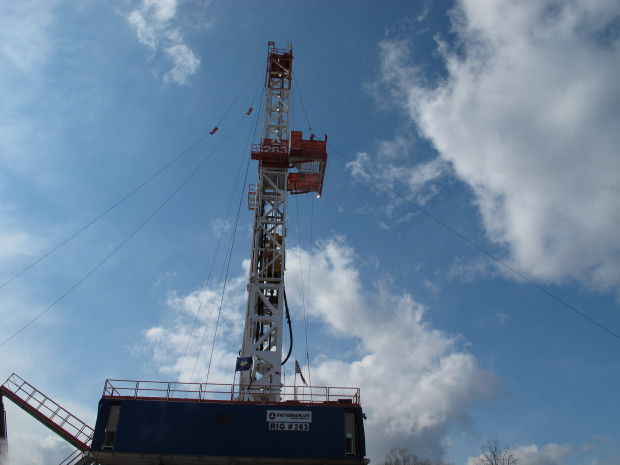EPA: Fracking can impact drinking water
The Environmental Protection Agency, in a revision from its earlier draft report on hydraulic fracturing for oil and gas, says in its final study that fracking can impact water supplies “under some circumstances.” The report details the circumstances where water has been impacted, and provides guidance on how to avoid water contamination.
When the EPA released its long-awaited draft report on fracking in June of 2015, the headline conclusion reported fracking did not cause “widespread systemic impacts” on drinking water. The report was cheered by industry, and spurned by environmentalists.
At the time, the agency held a conference call with reporters, where EPA’s science advisor and deputy assistant administrator of the office of research and development, Thomas A. Burke called the study “the most comprehensive” look at the impacts of fracking on drinking water.
“Based upon available scientific information, we found that hydraulic fracturing activities in the United States are carried out in a way that has not led to widespread systemic impacts on drinking water sources,” said Burke. “In fact the number of documented impacts on drinking water resources is relatively low when compared to number of fractured wells.”
EPA’s own scientific review board criticized that conclusion however, saying it did not hold up to the science reflected in the body of the report.
Michael Halpern, deputy director of the Center for Science and Democracy at the Union of Concerned Scientists, was critical of the EPA’s initial report’s executive summary and press release.
“It was clear from the day the report was released that the language could not be supported by the science,” said Halpern. “The scientific advisors were clear and a lot of scientists when they made public comments were clear that there was no evidence for the claim that there were no widespread systemic impacts of fracking on drinking water.”
Halpern says he’s happy the EPA removed “questionable language” from the executive summary.
The EPA looked at how the industry used water, sand and chemicals to force oil and gas out of rocks buried deep underground. The agency studied the hydrologic cycle of water related to the entire unconventional gas drilling process, including water withdrawals, well completion, and waste water treatment, recycling, and disposal.
Technically, fracking is just one limited stage of the drilling process, but the study also found problems and risks associated with well integrity, subsurface migration of natural gas, and poorly treated wastewater and wastewater spills.
Halpern says the EPA was stymied by an uncooperative industry.
“This study had a lot of limitations,” said Halpern. “Including refusal by the industry to provide information that woud have allowed the EPA to do a more comprehensive analysis. I think its important for the federal government to continue to have a strong role in providing information that states can use to protect citizens and residents from the risks of fracking.”
The Pennsylvania Department of Environmental Protection reports more than 250 incidents of private water supply impacts resulting from both conventional and unconventional (shale gas) drilling. Those incidents include water wells that have run dry as well as contamination.
Halpern says the initial report led to confusion and misinformation.
“A lot of damage was done when the industry was able to claim fracking was safe, but the meat of the report didn’t support that conclusion,” said Halpern.
Meanwhile, industry is no longer praising the report. Eric Milito is director of Upstream and Industry Operations for the American Petroleum Institute. “It is beyond absurd for the administration to reverse course on its way out the door,” he said. “These changes to the executive summary are really not based in science and are part of a political ambiguity.”
Milito says impacts to groundwater are not occurring in shale plays like the Marcellus. And given that burning natural gas instead of coal leads to reduced air pollution and greenhouse gas emissions, it should be embraced.
“We’re not going to stand here and say no incidents occur,” Milito told StateImpact. “What we’re going to say is this is a technology that has been around a long time, it’s been successfully deployed, the risks are low, it’s a very safe technology.”
Milito criticized environmentalists who have become active around the “keep it in the ground” movement, who he says have unfairly demonized the oil and gas industry. “Which is unfortunate,” he said, “because natural gas is resulting in cleaner air and reduced greenhouse gas emissions, which are tremendous environmental benefits all related to hydraulic fracturing.”
*This post has been updated from it’s original to include comments from the Union of Concerned Scientists and the American Petroleum Institute.

















